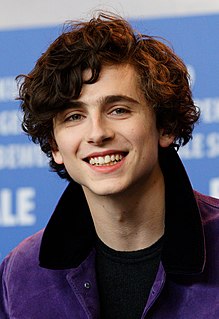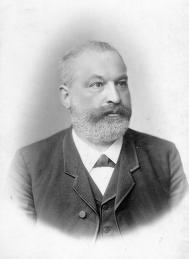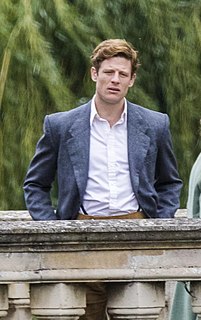A Quote by Timothee Chalamet
I want to attack and to lead my life with vigor, but I'm in the watching stage at the moment. Younger actors feel pressure to bring a pop to every scene; as the roles get bigger, I'm finding you can add layers and do less scene-to-scene.
Related Quotes
have a much harder time writing stories than novels. I need the expansiveness of a novel and the propulsive energy it provides. When I think about scene - and when I teach scene writing - I'm thinking about questions. What questions are raised by a scene? What questions are answered? What questions persist from scene to scene to scene?


































